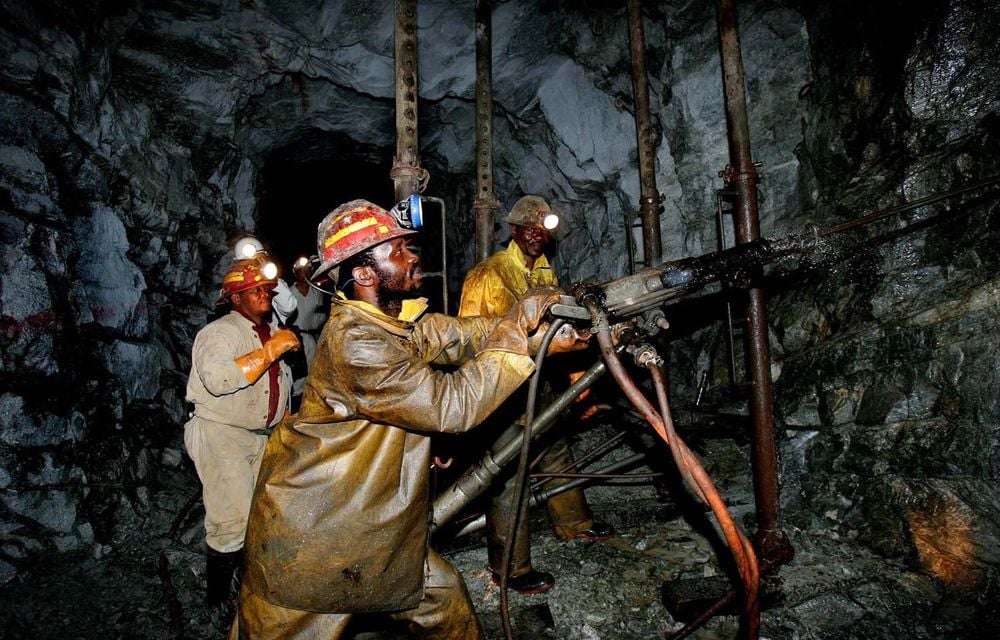The Government of Ghana and Gold Fields Ghana Limited have reached a significant agreement outlining a transitional plan for the Damang Mine, signaling a major development in the country’s mining sector and resource governance.
According to a statement signed by Felix Kwakye Ofosu, Spokesperson to the President and Minister of Government Communications, the new transitional framework includes the issuance of a “12-month mining lease” to Gold Fields’ subsidiary, Abosso Goldfields Limited.
“Under the new arrangement, Goldfields will resume open-pit mining during the transition period, safeguarding jobs and conducting feasibility studies to establish Damang’s reserves and mine life.”
Felix Kwakye Ofosu, Spokesperson to the President and Minister of Government Communications,
The lease, which is pending parliamentary ratification in May 2025, allows for the continuation of operations at Damang while laying the groundwork for a potential transfer to Ghanaian ownership.
A joint management team, composed of representatives from both the Government of Ghana and Goldfields, will oversee the processing of existing stockpiles throughout the transition.

The two parties have committed to working in good faith during the transitional phase and eventually to transferring a fully operational and economically viable mine to Ghanaian control.
This strategic move is indicative of the government’s broader plan to safeguard national interests while promoting local participation in the mining sector.
“This arrangement reflects the Government’s steadfast commitment to safeguarding Ghana’s long-term interests while reinforcing our enviable reputation as a premier mining investment destination in Africa.”
The Ministry for Lands and Natural Resources
The ministry further emphasized that upcoming policies will continue to focus on maximizing the benefits derived from the country’s mineral wealth in a sustainable and equitable manner.
Under the terms of the transition, Gold Fields will resume open-pit mining activities at Damang, which had previously shifted to stockpile processing.
This resumption is expected to secure jobs, maintain economic activity in the region, and allow for comprehensive feasibility studies to determine the remaining reserves and lifespan of the mine.
National Debate on Resource Ownership

The transitional arrangement has sparked widespread discussion among industry experts and within the broader public debate on resource ownership and economic sovereignty.
Mining consultant Ing. Wisdom Edem Gomashie publicly welcomed the development, noting that the presence of Gold Fields officials in Ghana to engage with government representatives is a promising sign of the nation’s growing interest in taking over key resource assets.
“I am particularly happy about this development.
“No sane Ghanaian is against nationalization or any mineral contractual agreement that will bring great benefit to the people of Ghana.”
Ing. Wisdom Edem Gomashie, Mining consultant
His remarks underscore a sentiment shared by many that any agreement promising significant long-term benefits through increased local control is a step in the right direction.
While he supported the government’s initiative, Ing. Gomashie also cautioned that nationalization in its entirety is a complex process.

“Nationalization in whole requires a lot of preparations by the state with a commitment to invest substantially in order to attract the necessary value.”
Ing. Wisdom Edem Gomashie, Mining consultant
This statement highlighted the importance of readiness, policy coherence, and strategic planning as essential components for the successful transfer of mining operations to local ownership.
In his view, exploring joint ventures (JVs) could prove to be a viable alternative. Such an approach would allow the state to gain equity and operational experience while still benefitting from the technical expertise and financial resources of established industry players.
“A balanced framework through JVs can ensure that the government not only learns from but also leverages global best practices, leading to a win-win situation for all stakeholders.”
Ing. Wisdom Edem Gomashie, Mining consultant
The transitional plan for the Damang Mine is part of a broader strategy by the Ghanaian government to restructure and modernize the mining sector, ensuring that the nation’s natural resources contribute maximally to national development.
With both the government and Goldfields approaching the transition with a spirit of good faith and collective purpose, the Damang Mine agreement could serve as a model for future deals aimed at securing sustainable economic growth and enhanced local empowerment in Ghana.
READ ALSO: Edudzi Tamakloe Defends Mahama’s Suspension of Chief Justice





















